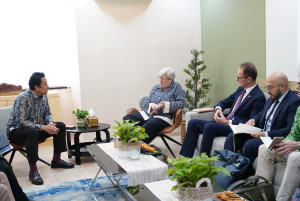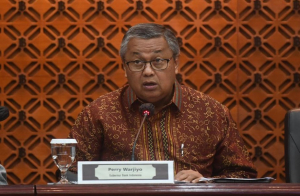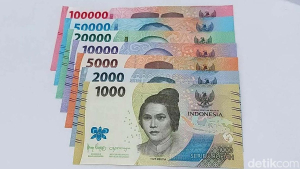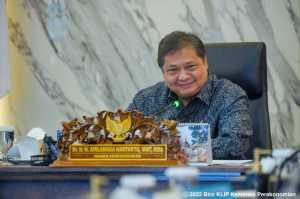RI moves forward with sustainable finance committee for green investments
The government, through the Ministry of Finance, the Financial Services Authority (OJK), and Indonesia Central Bank (BI), is pushing ahead with the formation of the Sustainable Finance Committee (SFC), as mandated by Law No. 4/2023 on the Development and Strengthening of the Financial Sector (P2SK).
The move is part of a broader effort to bridge a significant financing gap in achieving the country’s climate targets, with a supporting government regulation currently under development.
A major step in this initiative is the dissemination of a White Paper developed in collaboration with the Green Finance Institute (GFI), a UK-backed institution with expertise in green finance, supported by the U.K. Foreign, Commonwealth and Development Office.
The document, disseminated on Friday, May 9, 2025, in Jakarta, outlines governance structures and strategic pathways for the SFC to mobilize greater flows of private capital toward sustainable development projects.
The White Paper was disseminated during a stakeholder forum attended by key figures from Indonesia's sustainable finance ecosystem. It proposes ways to enhance the SFC's coordination role and increase investor confidence, with the ultimate goal of channeling capital into decarbonisation efforts while maintaining robust economic growth.
“Mobilising private capital at scale is essential to meet the urgent challenges of climate change and build resilient economies,” said U.K. Special Representative for Climate, Rachel Kyte, said in a statement on Monday May 12, 2025.
“Indonesia’s leadership in establishing the Sustainable Finance Committee sends a powerful signal to global investors,” she cited.
Financing Gap
Despite policy momentum, Indonesia still faces a massive financing shortfall. According to the Climate Budget Tagging (CBT) Report by the Ministry of Finance (2018–2023), only Rp702.9 trillion (US$46.9 billion) has been spent on climate-related initiatives, just 16.4 percent of the estimated amount required to meet Indonesia’s Nationally Determined Contributions (NDCs). The remaining 83.6 percent roughly US$240 billion, must come from private and international sources.
“The scale of investment needed far exceeds what public finance alone can provide,” said Head of the Policy Centre for the Financial Sector at the Ministry of Finance, Adi Budiarso in his statement.
“Mobilising private investment is not just a priority, it is essential,” he added.
Institutional Reform
In preparation for the White Paper, GFI conducted a 2024 study titled “Investors’ View on Sustainable Finance in Indonesia” identifying barriers to private capital inflows.
Key recommendations from the research now embedded in the White Paper include the establishment of investment platforms, regulatory clarity, and mechanisms for blended finance to facilitate private sector engagement.
“Our focus is on designing policy frameworks to unlock billions of dollars in investment for a resilient, zero-carbon economy. This requires dismantling structural barriers that hinder investor participation,” said Managing Director at GFI, Simon Horner
The White Paper advocates a coordinated SFC structure to align regulatory frameworks, project pipelines, and policy incentives, ensuring a stronger role for banks, institutional investors, project developers, and other key players in Indonesia’s green finance ecosystem.
The GFI is also collaborating with PT Sarana Multi Infrastruktur (PT SMI), a Ministry of Finance-owned infrastructure financing arm, to enhance the sustainable energy transition. PT SMI is viewed as a key catalyst in implementing green infrastructure and facilitating blended finance models.
The dissemination of the White Paper represents a critical milestone for Indonesia as it attempts to balance climate commitments with economic imperatives, leveraging private finance to drive its green transformation.
“Indonesia is at a pivotal moment. The groundwork is being laid to transform the financial landscape and make sustainable investment the norm rather than the exception,” said Budiarso.
The Sustainable Finance Committee is expected to be formalised following the enactment of the pending government regulation, marking a new chapter in Indonesia’s efforts to build a resilient, inclusive, and low-carbon economy.
Already have an account? Sign In
-
Start reading
Freemium
-
Monthly Subscription
20% OFF$29.75
$37.19/MonthCancel anytime
This offer is open to all new subscribers!
Subscribe now -
Yearly Subscription
33% OFF$228.13
$340.5/YearCancel anytime
This offer is open to all new subscribers!
Subscribe now







